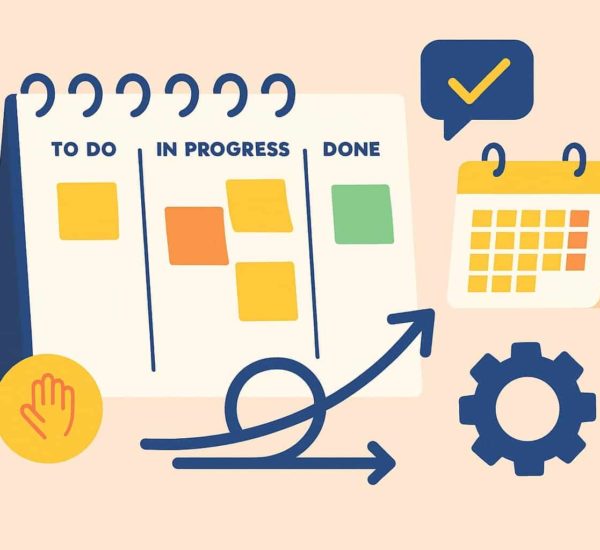If an employer closely monitors their employees, pinpoints several of their small mistakes, and reminds them of their tasks continuously, chances are they are a micromanager. Micromanagement is considered a negative thing at the workplace and can be a dangerous way of managing employees. Bosses who intervene a little too much in their employee’s activities aren’t always considered the best bosses.
Interestingly, this behavior isn’t just limited to bosses but also prevails in coworkers. Such coworkers are rarely liked by others. A bossy coworker can make life in the workplace frustrating and even difficult.
In this article, we talk about micromanagement, its effects on the employees, and ways how to deal with a micromanager, boss, and coworker. Additionally, we’ll also take you through some tell-tale signs of a micromanager.
What is Micromanaging?
As the term tells us, a micromanager is a person who manages everything extra closely and intervenes in their employees’ activities. Micromanagers closely observe the work of their co-workers too. Although most micromanagers have good intentions, micromanagement isn’t considered a healthy thing to do because it allows very little freedom within the workplace. Being micromanaged at work can lead to many negative emotions in the employees besides lowering their productivity.
Jenny Chatman, a professor of management at Haas School of Business at UC Berkeley who researches and consults on organizational culture says, “It’s more about your bosses’ level of internal anxiety and needs to control situations than anything about you,”
Signs of a Micromanager
Look for the following signs in someone you think may be a micromanager:
- They become over-involved in every task
- They dislike it if someone makes a decision without consulting them
- They are rarely satisfied with any result
- Thye set unrealistic deadlines
- They focus on trivial details
- Takes great pride in correcting or changing people’s work
- Micromanagers frequently communicate with their employees outside of office hours
- with such managers, turnover rates are usually high
- They prefer to be in the loop of every decision
- Is reluctant to delegate
- They may have severe mood swings
- Applies the same level of intensity and scrutiny to every task and never prioritizes.
How to Deal with a Micromanaging Boss?
Dealing with a micromanager boss can be exhausting and frustrating but you as an employee can take several steps to make things easier.
Understand What Triggers Them
Bosses micromanage when things don’t go their way. It can also mean employees are repetitively doing things that are triggering them. One way to manage a micromanaging boss is to understand what triggers them and stop doing those things. For instance, you need to understand why they are micromanaging you. Implementing the findings can help you become better and avoid being micromanaged often.
Ask What You Can Do Better
If you’re an employee with a micromanager boss, ask them how you can improve? Being direct is always a great solution. Asking what you can do better to address their managing needs. This will help set an intention of collaboration and support that will help you become a better employee.
Think From Your Boss’s Perspective
Sometimes putting yourself in another’s shoes can sort most things out. Do this and think from the perspective of your boss. You will understand why they feel the need to intervene in every task that you do. Ask them questions like what results do they expect out of this or how often do they want to be given status updates.
Have Productive Conversations
Set a positive intention for work with your boss. Identify which behaviors may trigger the micromanagement needs of your manager. Talk to them about the feeling you may have after certain behaviors are directed towards you. Try giving feedback on how their behavior and micromanaging affect you. If something doesn’t work for you, come to a solution that does.
Dig Deeper
Probe into the micromanaging method of your manager. If they ask you to do something, you can go into details and ask them what would happen if they did this? Or what outcome will doing this task generate? Once you do get into the details, you both will find it easy to be on the same page. You will know what they expect of you and they will know you’re working just fine on your own.
Find the Root Cause
Sometimes, it’s good to keep an eye on your own work as well. Finding the root cause of why your manager feels the need to micro-monitor everything is a great start, to begin with. Ask yourself questions like what am I doing that made my boss say that? Am I delivering the work just like they want? Is my performance okay?
Build Trust
It always comes down to building trust between you and your manager. A person feels the need to micromanage, overanalyze and intervene in someone’s work only when there isn’t enough trust. Building trust is the key to reducing such behavior on the part of your micromanager.
Meet the Expectations
Most micromanagers have good intentions towards their employees. One solution can be to meet the expectations they have set. Understand what’s important to them and then meet those expectations. Focus on building trust by consistently delivering results.
Join the Forces
Partnering up with your manager is another solution to putting the need for micromanaging to an end. Both you and your manager want the company’s success. It’s a good idea to join hands with them and take their advice. Invite conversations with them and talk about what advice you like and which you’d rather not take.
Provide Guidance
Sometimes micromanagers aren’t aware that they are micromanaging you. You can always guide them on that front. If you don’t like a certain behavior directed at you, question it. You can always say things like can I have y take at this task? Can I take things my way on this project?
Welcome the Suggestions with a Smile
Welcome, all that your micromanager boss may throw at you, with a smile. If it’s something you dislike you can always ask them do you not trust me on this? And if you think you’re doing the task well enough then assure them that you’ve got this. Again building trust is the key.
How to Deal with a Micromanaging Coworker?
There are control freaks at your workplace that often make a workplace toxic. Although you can’t control your boss or coworkers, you can control how you respond to their behavior.
Set Boundaries
Don’t let your micromanager coworker ruin your day. Stay calm and rise above the drama. Set clear boundaries and clearly communicate where you don’t want them to intervene. Sometimes when you’re being nice it can be hard to say no. But it’s important to recognize when you’re being manipulated and micro-managed. Set clear limits on things you aren’t willing to do.
Control How You Response
You can’t control how a micromanager may behave toward you but you can always choose how to respond to that. For instance, if you find that micromanager coworkers talk about their self-proclaimed high standards that you and others fail to meet, leave that conversation. Stay calm and let your anger go. Just focus on how you can better yourself without having to worry about others.
Don’t Take Orders
When you will continuously do as they ask you, you’ll feed their controlling personality even more. Learn to refuse to take orders. Make them understand that they’re, not the boss.
Face It
Sometimes that best option is to directly say no. Refuse to be micromanaged at work at the hands of mere coworkers. If you don’t like how they come at you, confront the situation, tell them you perceive specific comments as hurtful, and you’d rather prefer them to talk in some other way.
Keep it About Work
Not everything that everyone says is meant to be taken personally. Keep it all about work. Listen to them but at the same time keep calm, do your work and remind yourself that this is about work and your co-worker.
Think from their Perspective
Just like it’s for micromanager bosses, it’s the same for coworkers. Learn to gain perspective from your coworkers and think about why this might be happening. Some reasons can be that they have more experience than you and therefore want you to be doing things the same way.
Question Yourself
It’s always a good idea to keep a check on yourself as well. You may want to change your way of doing things that may be triggering their micromanagement behavior. In some cases doing things, as they say, may prove beneficial for you.
Building Synergy and Trust
Again, trust is important. Assure your coworker that you’ve got this so they can stop micromanaging every move of yours.
Notice Things Around You
See if the micromanager coworker is behaving like this with everyone or if it is just you. Ask questions like ‘Are they the same towards everybody? Is someone else also saying something?’ If it’s with everyone, you need to think about how this can be avoided. If it is just with you, chances are things may be above micromanagement for you.
Raise Your Opinions
We all know that control freaks tend to think their methods and tactics are superior to everyone else’s. But if you disagree with some of their suggestions or advice, don’t hesitate to speak up. Question their way and make them believe there are other people who can think of better ideas.
Don’t Argue
Arguing with a micromanager coworker isn’t going to get you anywhere, It will instead drain more of your energy. The best way to deal with people like this is to stay calm and avoid arguments if you realize you both aren’t going to be on the same ground.
Have a Mediator
When you both realize things are only going south, consider involving a mediator. Although it may seem childish, it’s a great solution for issues like this. Set up a meeting with your boss where both of you present your cases. Only then a manager can decide which method they think is better to reach the results.
Learn to Ignore
In some situations–especially if the bad behavior persists despite your best efforts–it may be best to try ignoring it. Ignoring what they may have to say to you can derail them off their strategy and might even prevent it from happening again. If nothing, it will help stay peaceful.
Seek Support
There are likely many other coworkers who are frustrated by this person. You can always seek additional support from these coworkers if your manager isn’t taking notice.
Lead by Example
When you treat everyone around you in a polite and better way, they’ll notice. Leading by example can be a good way to tackle such people.
The Bottomline
Micromanagement, be it from a boss or a coworker isn’t the greatest trait. Both managers and coworkers need to avoid this. Instead, they should focus on establishing and maintaining open, honest communication and setting boundaries. With the right mindset and the right attitude, you can deal with such micromanagers effectively.







